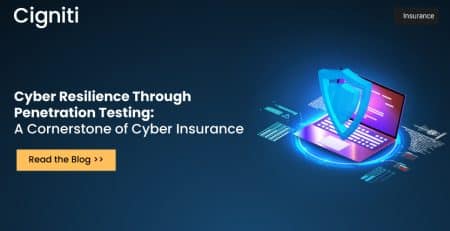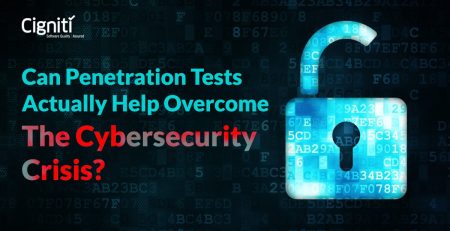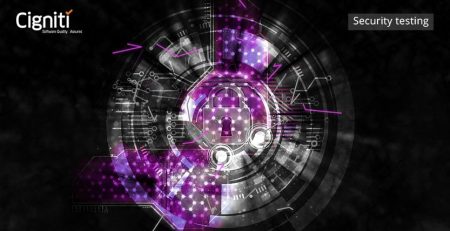Top cybersecurity trends to adapt in 2022
Since digital information and technology are now so deeply intertwined in day-to-day work, organizations have become significantly more vulnerable to cyber threats. However, the assaults themselves are becoming significantly more sophisticated, targeting both information and essential infrastructure.
Cyber-risk incidents can cost a business a lot of money in terms of operational, financial, reputational, and strategic effects. Therefore, traditional security solutions have become less effective, and most businesses now need to step up their cybersecurity game.
As a result of the pandemic’s transition to remote work, companies have become more exposed to malicious assaults. To combat such attacks, you must keep a close eye on developing cybersecurity trends. The main cybersecurity trends for 2022 will be discussed in this article.
Attacks on the Medical and Healthcare Industries
Data breaches are the most common cybersecurity issue in the healthcare industry, and they are costing businesses a lot of money. Because of the coronavirus outbreak, some healthcare businesses have reduced their firewall policies to allow their employees to work from home. Hence, healthcare firms are paying more attention to security regulations like HIPAA compliance in order to protect patient data.
Internet of Things (IoT) Vulnerability
Most IoT devices on the market today are plagued by security vulnerabilities. Data can be sent and received over the Internet using computing units incorporated in IoT items. Users are exposed to cyberattacks such as denial of service (DoS) or hijacked devices because of this. As the IoT connects the virtual and real worlds, home invasions are becoming one of the most terrifying hazards that IoT may offer. As a result, IoT devices provide a plethora of opportunities for both enterprises and cybercriminals.
Security in the cloud
More and more enterprises and organizations are migrating to the cloud with the help of the top cloud management software solutions. Most cloud services, however, do not yet provide safe encryption, authentication, or audit logging. Some companies also fail to keep user information separate from that of other occupants who share cloud space. Therefore, IT security experts believe that cloud security must be strengthened. Due to a lack of cloud security settings, fraudsters may be able to circumvent internal restrictions that protect critical data in the cloud database. Thus, cloud security is evolving into predictive and inventive protection to battle cybercriminals.
Cyberattacks on the Financial Services
Another business that faces cyber-attacks on a regular basis is financial services. It doesn’t help matters that some financial institutions are still trying to keep up with cloud migration and the influx of rules. Phishing assaults are still common in the financial services industry, but they’re no longer limited to emails. Phishing via social media and other messaging platforms is currently one of the most common cybersecurity concerns in the financial services industry.
Cybersecurity enabled by AI
Artificial intelligence (AI) can combat cybercrime by spotting patterns of behavior that indicate something out of the usual is happening, similar to how it is used in financial services for fraud detection. Importantly, AI allows this to be done in systems that must deal with thousands of events per second, which is often where fraudsters try to strike.
Machine learning (ML)
ML is playing a larger and more proactive role in cybersecurity. Cybersecurity becomes easier, more effective, and less expensive with machine learning. ML creates patterns and manipulates them with algorithms using a large dataset. It will be able to predict and respond to active attacks in real-time in this manner. To create effective algorithms, this technology largely relies on extensive and complex data. The information must come from a variety of sources and represent as many different scenarios as possible. As a result of ML implementation, cybersecurity systems can assess attack patterns and learn the behaviors of cybercriminals. These aid in the prevention of future attacks and reduce the time required for cybersecurity professionals to execute basic operations.
Environment-friendly 5G networks
For data exchange and self-control, today’s digital revolution is heavily reliant on device connectivity. To do so efficiently, a high-performance network is required, and 5G technology is well suited to the task. Given a smart city’s dependency on telecommunications, which connects everything, numerous countries have declared 5G networks to be national infrastructure. Their safety has become a matter of national security. In a word, “security by design” is essential for a safe 5G network, as it addresses security risks from the start. Following the COVID-19 outbreak, a rising number of countries appear to be following the US government’s lead in labeling a few companies as untrustworthy suppliers. While such incidents may be motivated by political concerns, one thing is certain: they are not going away anytime soon.
Nobody knows what the future holds for cybersecurity, and many industries are still working out how to secure their networks in the midst of the pandemic’s confusion and uncertainty. However, these recent trends give us a glimpse of what we might expect in the coming years. It’s apparent that IT security software developers and administrators will be in high demand for years to come.
Conclusion
While integrating cybersecurity in the digital age is critical, with the appropriate methodology and subject matter expertise, businesses may expect significant benefits that help them stay ahead of the competition.
Cigniti’s Application Security Testing Services not only help you identify risks in your application, but also ensure that it complies with regulatory and compliance requirements. To make their applications threat-proof, leading businesses in North America rely on our penetration testing services. We’ve worked with some of the world’s most well-known major and small organizations, assisting them in developing safe and secure software for their customers.
When your cloud deployment fails to meet the criteria, Cigniti’s staff validates it and provides you with relevant repair advice. The team performs proactive, real-world security checks with the same tactics that attackers use to break into your cloud-based systems and applications.
Need help? Talk to our cybersecurity experts to learn more about the top cybersecurity trends to adapt to in 2022 and build the right security strategy for your organization.





Leave a Reply